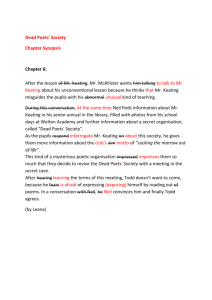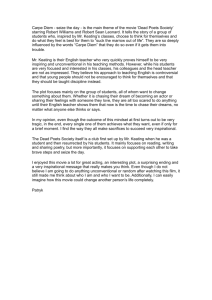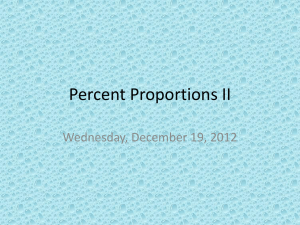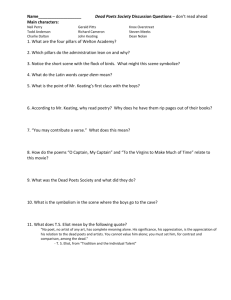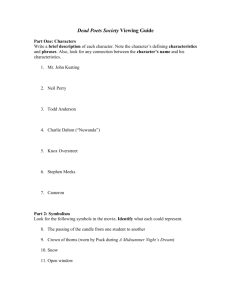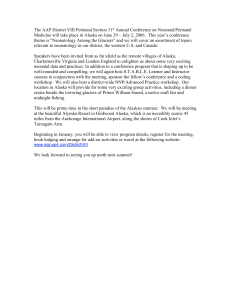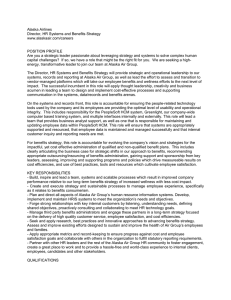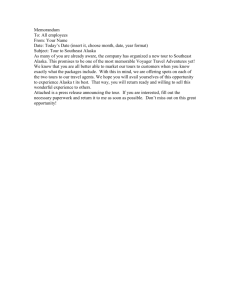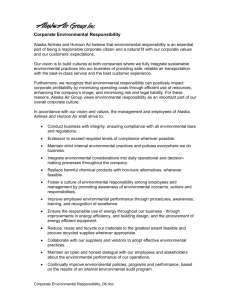1. How is “The Great Perhaps” present in Dead Poets Society?
advertisement
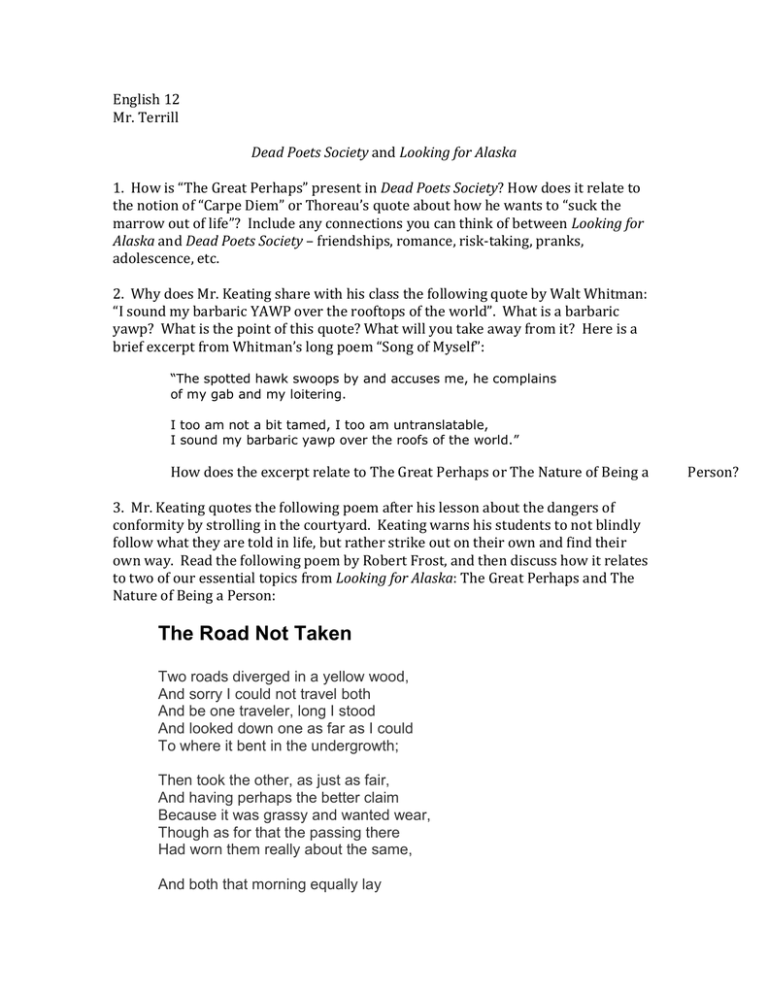
English 12 Mr. Terrill Dead Poets Society and Looking for Alaska 1. How is “The Great Perhaps” present in Dead Poets Society? How does it relate to the notion of “Carpe Diem” or Thoreau’s quote about how he wants to “suck the marrow out of life”? Include any connections you can think of between Looking for Alaska and Dead Poets Society – friendships, romance, risk-taking, pranks, adolescence, etc. 2. Why does Mr. Keating share with his class the following quote by Walt Whitman: “I sound my barbaric YAWP over the rooftops of the world”. What is a barbaric yawp? What is the point of this quote? What will you take away from it? Here is a brief excerpt from Whitman’s long poem “Song of Myself”: “The spotted hawk swoops by and accuses me, he complains of my gab and my loitering. I too am not a bit tamed, I too am untranslatable, I sound my barbaric yawp over the roofs of the world.” How does the excerpt relate to The Great Perhaps or The Nature of Being a 3. Mr. Keating quotes the following poem after his lesson about the dangers of conformity by strolling in the courtyard. Keating warns his students to not blindly follow what they are told in life, but rather strike out on their own and find their own way. Read the following poem by Robert Frost, and then discuss how it relates to two of our essential topics from Looking for Alaska: The Great Perhaps and The Nature of Being a Person: The Road Not Taken Two roads diverged in a yellow wood, And sorry I could not travel both And be one traveler, long I stood And looked down one as far as I could To where it bent in the undergrowth; Then took the other, as just as fair, And having perhaps the better claim Because it was grassy and wanted wear, Though as for that the passing there Had worn them really about the same, And both that morning equally lay Person? In leaves no step had trodden black. Oh, I marked the first for another day! Yet knowing how way leads on to way I doubted if I should ever come back. I shall be telling this with a sigh Somewhere ages and ages hence: Two roads diverged in a wood, and I, I took the one less traveled by, And that has made all the difference. - Robert Frost 4. Dead Poets Society is set almost fifty years before Looking for Alaska. How are they different in terms of what they say about life as a teenager? What does this say about life in general? How has being a teenager stayed the same in fifty years? How has it changed? 5. How is “the labyrinth” present in Dead Poets Society? Which characters experience labyrinths of suffering? How are their labyrinths different? How does Neil, Todd, and Knox all experience labyrinths of suffering? How do they escape their labyrinths using the Great Perhaps/Carpe Diem? Is it worth it for them to escape? 6. What is your reaction to Neil’s suicide? How does your reaction relate to Miles’ letter at the end of Looking for Alaska? Would you have told Neil something similar to what Miles wished he could have told Alaska – that she needn’t have done what she did because they are as invincible as they think they are? 7. In the end, what do you take away from this book and this movie? What have they taught you about life, specifically as a teenager? What will you remember about them? Have they motivated you to examine your own life? Will you change the way you approach life at all? Why or why not?
